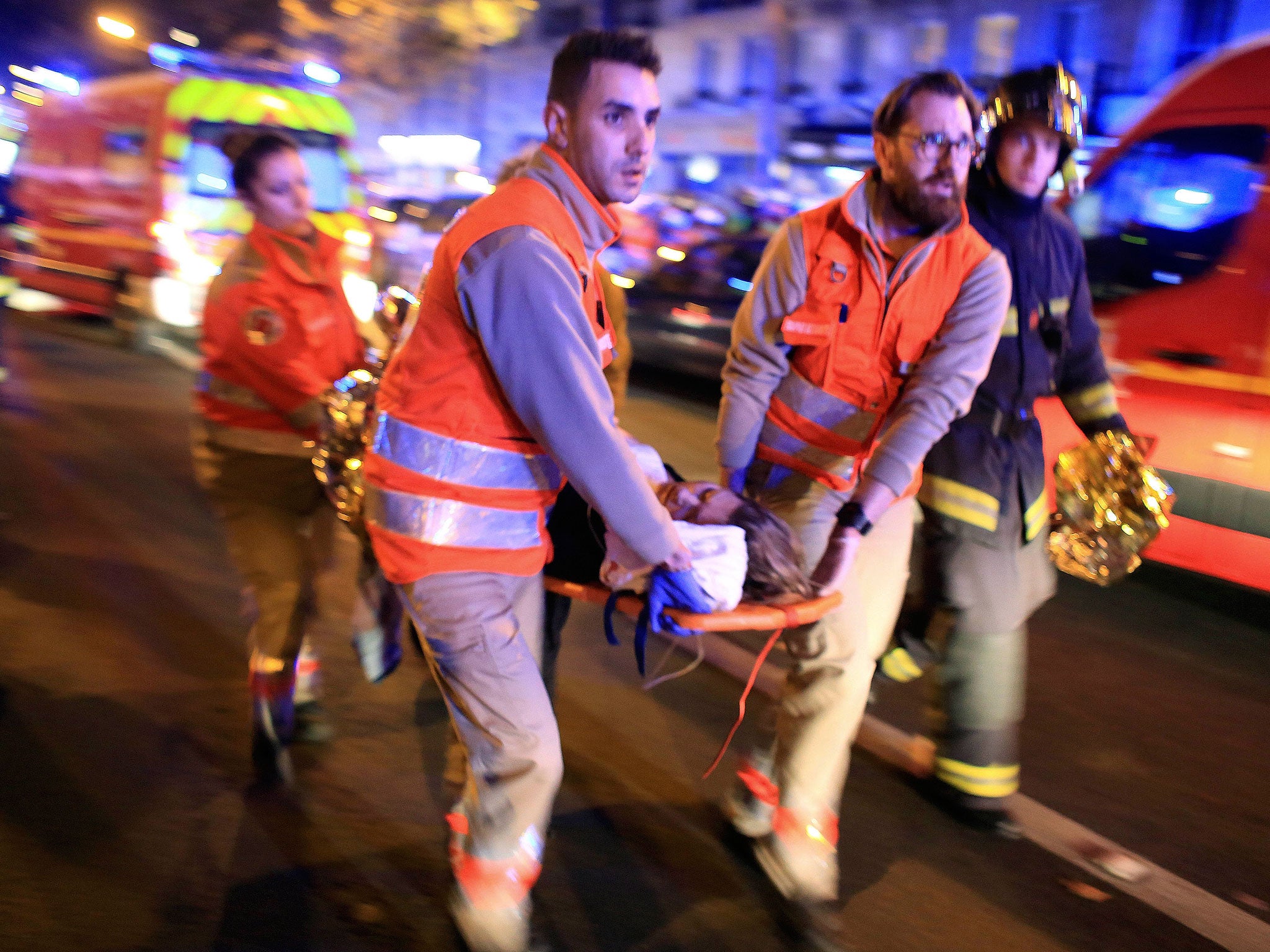Islamist terrorism: Getting to grips with the post-jihad world
Peter Nesser gives a detailed analysis of the threat we face, while German-Egyptian political scientist Hamed Abdel-Samad traces Islam's fascist tendencies back to its founder

Your support helps us to tell the story
From reproductive rights to climate change to Big Tech, The Independent is on the ground when the story is developing. Whether it's investigating the financials of Elon Musk's pro-Trump PAC or producing our latest documentary, 'The A Word', which shines a light on the American women fighting for reproductive rights, we know how important it is to parse out the facts from the messaging.
At such a critical moment in US history, we need reporters on the ground. Your donation allows us to keep sending journalists to speak to both sides of the story.
The Independent is trusted by Americans across the entire political spectrum. And unlike many other quality news outlets, we choose not to lock Americans out of our reporting and analysis with paywalls. We believe quality journalism should be available to everyone, paid for by those who can afford it.
Your support makes all the difference.The terrorist attacks on Paris last November were the most lethal in Europe since the Madrid train bombings in 2004. Soon after, David Cameron revealed that seven Isis plots against the UK had been foiled in the preceding 12 months. So Petter Nesser's detailed analysis of the threat we face, Islamist Terrorism in Europe (Hurst, £20), could hardly be more timely. Its main focus is on the individuals involved, their backgrounds, motivations and modus operandi. He divides jihadi terrorists into four different types: entrepreneurs, protégés, drifters and misfits, a categorisation he believes could be helpful in counter-terrorism. Dozens of case studies are used to chart the evolving links of homegrown cells with local support networks and international groups, especially al-Qaeda and its various affiliates.
Nesser shows how Europe was largely protected until the mid-2000s by a "covenant of security" governing the way Muslims should act in the countries where they reside. That covenant broke down due to European involvement in the invasions of Afghanistan and Iraq, the publication of the Mohamed cartoons and growing arrests of Islamists. The terrorist threat, he predicts, is likely to increase due to the emergence of Isis and the blowback from European fighters in Syria. Nesser's meticulous research will make this book invalu slam able for academics and policy-makers. It's perhaps less for the general reader, unless you want to scare yourself with how many terrorist attacks there have been in the past 20 years, or reassure yourself by discovering how many more have been foiled.
To describe someone as an "Islamist" does not necessarily mean he's a jihadi terrorist, as Tarek Osman makes clear in his informative study Islamism: What it Means for the Middle East and the World (Yale University Press, £20). His definition of Islamism, Islam as a political, economic and social system, transcending mere religion, also encompasses the puritanical, the apolitical and even the progressive.
The Islamist models provided by Turkey and Iran are examined, but he is chiefly interested in North African groups such as the Muslim Brotherhood in Egypt, which he believes have taken significant strides in the past few decades towards reconciling Islamism with modernity and democracy. This welcome process looks to have been derailed following the brief rise and fall of the Islamists after the Arab Spring. This has made them jettison their experiment with plurality and revert to theological leadership.
A far more loaded term than "Islamism" is "Islamic fascism" – used last year by the French Prime Minister to describe the attack on Charlie Hebdo. Many Western liberals balk at comparing Islam, even at its most extreme, with something as repellent as fascism. The German-Egyptian political scientist Hamed Abdel-Samad, however, is utterly unapologetic about describing as fascist Islamic movements ranging from the regime in Iran to Hamas to Egypt's Muslim Brotherhood, which he used to belong to. In fact he goes much further. It's no surprise that he's the subject of a fatwa and lives under German police protection. His polemic Islamic Fascism (Prometheus, £19.99) traces Islam's fascist tendencies back to its founder. The many violent acts he says were perpetrated by the Prophet "sowed seeds of intolerance at the heart of Islam".
Abdel-Samad believes there should be more cartoons of the Prophet, and that to wrest their religion back from the Islamists, ordinary Muslims should abandon the "eternal inviolability of the Qur'an and the Prophet". A highly provocative diatribe; but the author isn't worried. The more violent the reaction, he says, "the more the masks of supposed Islamic moderates will slip".
Join our commenting forum
Join thought-provoking conversations, follow other Independent readers and see their replies
Comments